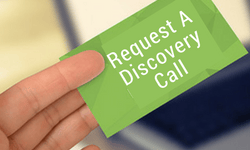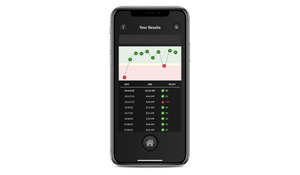Legalizing marijuana, or cannabis, across many states and countries has left safety-sensitive businesses wondering how to manage marijuana use without dismissing current workers or disqualifying hundreds of applicants from employment.
Since pre-employment and random drug tests can reveal THC for days and weeks after use, many workplaces are concerned about losing employees who consume marijuana during their time off in a manner that doesn’t impact their safety and alertness at work.
With current labor shortages and Amazon’s recent decision to remove THC from pre-employment drug screens, businesses in manufacturing, construction, oil and gas, and warehousing are finding it difficult to reconcile their commitment to safety and zero-tolerance drug policies with their need for productive and efficient business operations.
“It seems like every day we have people coming in for applications, and then they don’t show back up for the drug test.”
Thankfully, technology has made great strides since cannabis first started becoming legalized.
Marijuana and Drug Testing, an Alternative
The AlertMeter® is a 60-second cognitive-readiness or alertness-sufficiency test that was created with NIOSH-funded research. Today, it is the only alertness-sufficiency test available to workplaces. It has garnered widespread attention to help manage legalized marijuana while also having a positive impact on issues related to fatigue, mental distress, alcohol, and more.
With cognitive-readiness testing, businesses no longer need to choose between safety and productivity or relax their marijuana drug-testing policies and aggravate labor shortages. Testing cognitive-readiness with AlertMeter can help your company maintain a high standard for safety and productivity.
Here are five ways cognitive-readiness testing with AlertMeter® helps businesses overcome the dilemma of marijuana legalization:
Reveal a Worker's Readiness to Perform Their Duties in Real Time vs Marijuana Drug Testing
A real-time metric for worker alertness means that workplaces can rely on more than a worker’s “history of use” when making a hiring decision.
Of course, pre-employment drug testing is essential in filtering out habitual drug users from safety-critical jobs. However, it can become problematic when sober and qualified workers are blocked out of the workplace due to the legal consumption of cannabis during off hours.
With cognitive-readiness testing, employers have an additional layer of confidence that impaired workers will be filtered out of the workplace daily and not only during the pre-employment drug test.
Further, workers won’t be judged based on their personal decisions during their off-time. Only their current state of alertness as they step onto the worksite will be assessed.
Thus, the real-time insights provided by cognitive-readiness testing boost safety daily and increase productivity. Cognitive-readiness testing assures workers that their employers are not concerned with their personal lives but with being alert while at work. This shift in focus leads to reduced turnover and a more positive workplace safety culture essential for more efficient and productive business operations.
Objective and Non-Discriminatory Alternative to Marijuana Drug Testing
Reasonable cause drug testing is an essential process that allows employers to proactively remove potentially impaired workers from the work site.
However, the effectiveness of this procedure relies entirely on the subjective assessment of the supervisor on duty.
If that supervisor has too many workers to oversee; if they are unable to observe each employee’s behavior daily; if they are not adequately trained to recognize the signs of impairment; or if they lack the confidence or desire to approach a worker and tell that worker to urinate in a cup, the effectiveness of reasonable cause testing is diminished.
Cognitive-readiness testing helps to remove the guesswork, providing supervisors with notification if a worker’s level of alertness is out of range. Reasonable cause testing is used as a follow-up screening method when deemed necessary. The process is irrefutably objective, fair, non-invasive, and professional.
Supervisors are given the tools to become stronger leaders, while workers deserve respect, privacy, and empathy. These improvements in communication save supervisors valuable time and develop stronger team relationships based on a shared concern for safety. The use of drug testing is optimized, workers feel respected and heard, and supervisors focus on proactive rather than punitive safety measures. These outcomes lead to reduced turnover, increased productivity, and increased safety.
Reduce Turnover by Focusing on All Sources of Impairment vs Just Marijuana Drug Testing
Companies that utilize impairment testing have already witnessed that implementing an objective method to identify potential impairment allows supervisors to recognize impairment prevalence unrelated to substance use.
For example, a worker who smoked marijuana during his vacation a week ago, then showed up to work completely sober yet fatigued due to problematic shift schedules, could be fired for a positive drug test.
Meanwhile, other employees will continue working, dangerously impaired due to unresolved fatiguing work conditions.
However, having a quick conversation with a potentially impaired worker before ordering a drug test would allow the supervisor to identify the accurate and current culprit, enact a fatigue countermeasure, retain the skilled and sober employee, and use the insight to improve their overall working conditions.
Safety is improved because there is greater visibility into all sources of impairment. Every source of impairment is no longer lumped under a positive drug test and discarded from the conversation. Skilled, sober, and tired workers are not fired for what they legally consumed on vacation. Instead, their fatigue is recognized and mitigated by solid and empathetic leadership. Productivity is increased due to improved alertness at the worksite, reduced turnover, and reduced lost time.
An Easy-to-Implement Safety Procedure that Guards Against More Than Marijuana Drug Testing
Most importantly, cognitive-readiness testing is a safety procedure that can be implemented easily in any workplace.
The AlertMeter works alongside existing company procedures to maximize safety and productivity.
AlertMeter is:
- At 60-second, graphics-based alertness assessment
- App-based enabling it to be taken on existing company tablets, computers, or on workers’ mobile devices
- Creates a worker-specific baseline after just a few tests making it effectively impossible to cheat
Conclusion
As a society, culture, and regulations adjust to permit cannabis a greater role in workers’ lives, repercussions on business and safety are felt most profoundly by safety-sensitive industries experiencing labor shortages and hiring difficulties.
Without the necessary technology, workplaces have found it challenging to maintain productive and efficient operations while enforcing a high safety standard regarding substance use.
Cognitive-readiness and alertness testing is a safety-enhancing, worker-positive solution for many companies.
This article outlined five unique qualities of cognitive impairment testing that make it uniquely well-suited for this role:
- Real-time insights
- Comprehensive focus on all sources of compromised alertness
- Objective and consistent application
- Easy implementation




